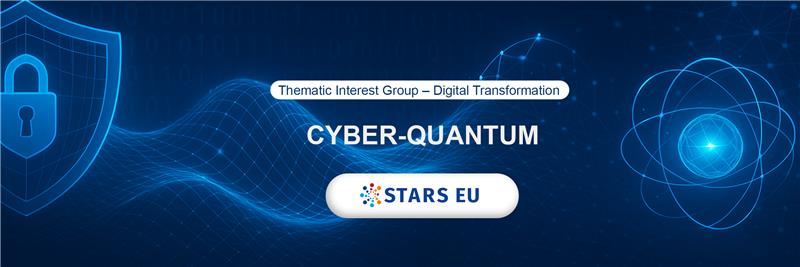
The problems related to privacy and security remain challenging in modern ICT infrastructures and mobile distributed systems. System end-users now utilize various devices and services for applications that fall under the data-intensive paradigm, such as Skyline queries, streaming information relays, and crowd-sourced disaster management. This paradigm shift has opened up new research directions in security, data interoperability, sustainable software development, and numerous other areas.
A particularly transformative force in this evolving landscape is quantum computing, which introduces both disruptive capabilities to existing cryptographic protocols and the potential for new, robust security paradigms. Specifically, while specific quantum algorithms pose a substantial threat to current cryptographic foundations, such as Shor’s algorithm, which can factor large integers efficiently, and Grover’s algorithm, which speeds up brute-force searches, quantum cryptography offers a promising avenue for secure communication, leveraging fundamental principles of quantum mechanics.
With the advent of quantum computing, traditional cryptographic protocols based on factorization and discrete logarithm problems are becoming increasingly vulnerable. Post-quantum cryptography emerges as a critical area of research, aiming to develop new cryptographic algorithms that remain secure even in the presence of quantum adversaries. These quantum-resistant methods are designed to ensure long-term data confidentiality and integrity in a post-quantum era, addressing challenges across secure communications, authentication, and digital signatures. As a result, the integration of post-quantum cryptography is essential for future-proofing modern ICT infrastructures against the disruptive potential of quantum technologies.
Addressing this evolving landscape necessitates a comprehensive re-evaluation of current security frameworks to ensure resilience against future threats and to effectively utilize quantum mechanics for advanced privacy solutions. This includes research on quantum key distribution, as well as quantum cryptographic primitives such as quantum oblivious transfer, quantum zero-knowledge proofs, and quantum bit commitment, and quantum machine learning applications for threat detection and mitigation. Threat modelling and risk assessment in a quantum-enabled world are now central concerns for cybersecurity researchers.
CYBER-QUANTUM is a research subgroup of the TIG DT team of STAR EU Alliance (https://starseu.org/tig-digital-transformation/), which provides a forum for close collaboration in the broad field of cybersecurity and/or quantum computing. The scope of activities encompasses a range of joint initiatives, including scientific publications, participation in research projects, attendance at scientific conferences, scientific exchanges, and support for young scientists (supervision of doctoral theses). The topics include, but it is not limited to the following:
- Complex systems for security-aware data gathering and assimilation
- Complex edge and fog secure models and infrastructures
- Mobile secure multi-agent systems
- Machine learning–based models and simulators for anomaly and intrusion detection in distributed environments (grids, clouds)
- Advanced security and privacy mechanisms in smartphones and tablets
- Scalable identity and authentication protocols in complex systems
- Security-aware resource allocation and scheduling in clouds and grids
- Secure communication in Smart Grid
- Security of Internet of Medical Things
- Secure 5G applications for Smart Grid
- Economic models in secure networks
- Secure network applications
- Post-Quantum Cryptography (PQC) for current and future ICT infrastructures
- Quantum key distribution (QKD) protocols and implementations
- Quantum cryptographic primitives and their implementations
- Quantum-resistant algorithms for data privacy and integrity
- Quantum machine learning for cybersecurity applications
- Threat modelling and risk assessment in a quantum-enabled world